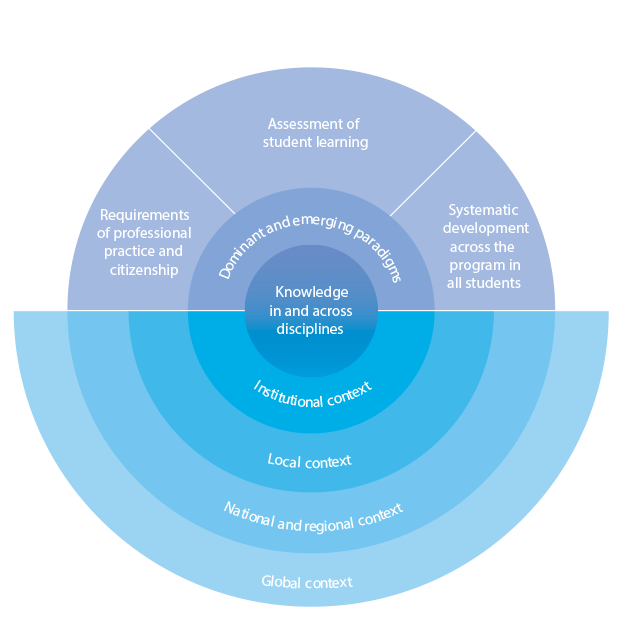Framework summary
Each contextual layer of the framework directly and indirectly interacts with and influences the others. This creates a complex set of conditions within which the curriculum is constructed by academic staff and experienced by students. Hence we find that conceptualisations and enactments of internationalisation of the curriculum vary between disciplines in the one institution, and in the same discipline in different institutions. For example, some disciplines are less open to recognising the cultural construction of knowledge than others and the international perspectives required of a nurse or a pharmacist will most likely focus more on socio-cultural understanding than those of an engineer. Some will be more influenced by the requirements of local employers or national professional associations than others.
The framework assists understanding of the broad concept of internationalisation of the curriculum as well as the role of the disciplines and academic staff in it. It identifies some of the key questions that need to be considered when engaging in the process of internationalisation of the curriculum in a particular academic program.
While internationalisation of the curriculum is to some extent disciplinedependent, other critical factors will also influence the approach taken by academic staff to internationalisation of the curriculum.
Collapse







